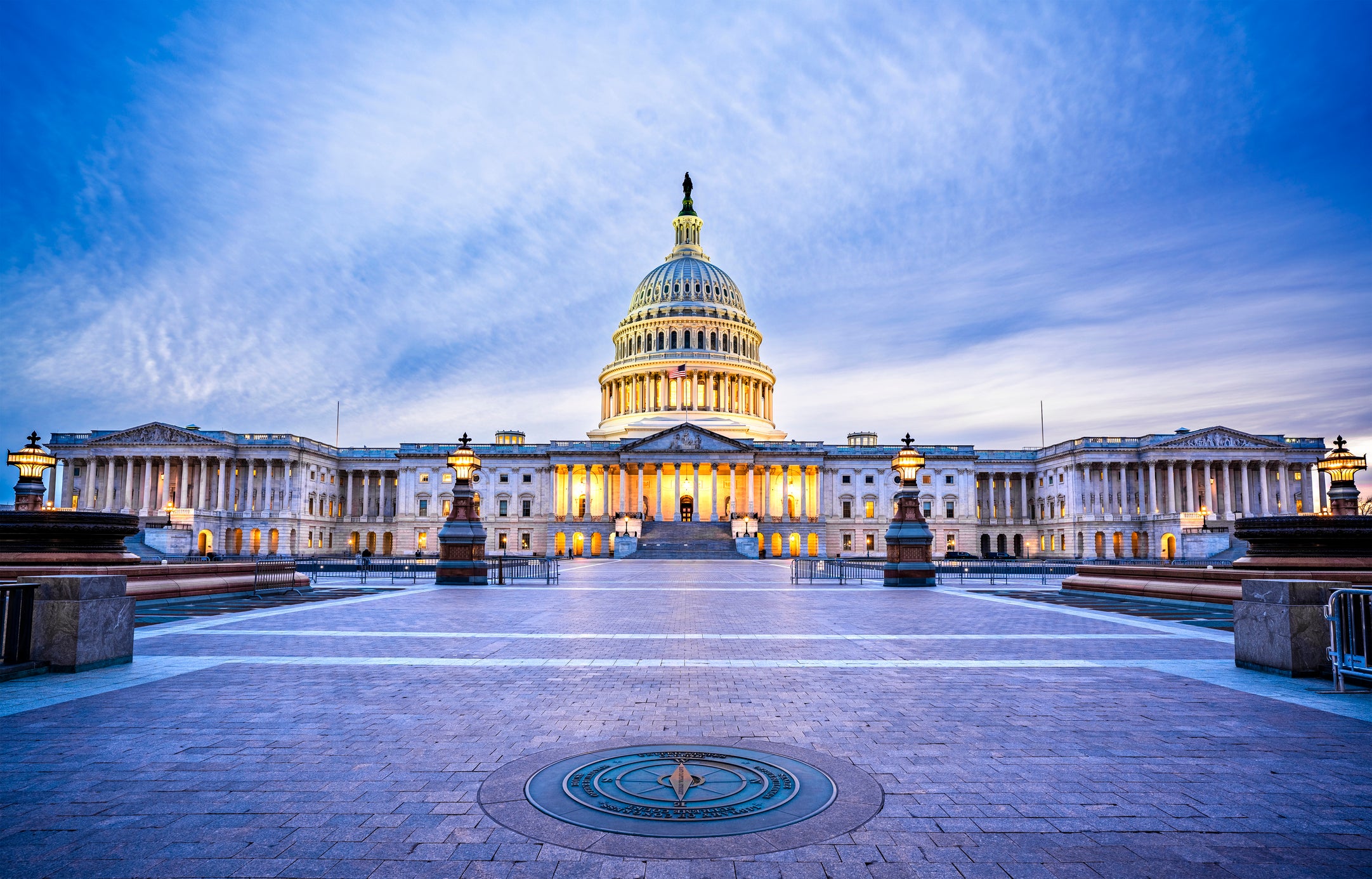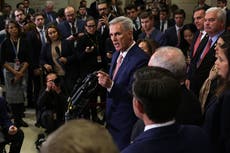What happens if the US government shuts down at midnight on Saturday?
Deadline for lawmakers to fundthe governemt is 11.59pm on 30 September
Your support helps us to tell the story
From reproductive rights to climate change to Big Tech, The Independent is on the ground when the story is developing. Whether it's investigating the financials of Elon Musk's pro-Trump PAC or producing our latest documentary, 'The A Word', which shines a light on the American women fighting for reproductive rights, we know how important it is to parse out the facts from the messaging.
At such a critical moment in US history, we need reporters on the ground. Your donation allows us to keep sending journalists to speak to both sides of the story.
The Independent is trusted by Americans across the entire political spectrum. And unlike many other quality news outlets, we choose not to lock Americans out of our reporting and analysis with paywalls. We believe quality journalism should be available to everyone, paid for by those who can afford it.
Your support makes all the difference.Unless the US House of Representatives and Senate can agree on legislation to continue funding the federal government past the end of the 2023 fiscal year, the federal government will have to furlough as many as half of the 1.5 million civilian employees on its payroll and close operations at numerous facilities while shuttering vital programmes.
The fast-approaching deadline is 11.59pm on 30 September, the last day of the US government’s fiscal year.
When the clock strikes midnight on 1 October — the start of fiscal year 2024 — no part of the US government will be able to legally spend any money to pay its workforce unless Congress passes, and President Joe Biden signs, a law appropriating funds for the new fiscal year.
This is due to the effects of an 1883 law known as the Antideficiency Act, which prohibits the government from entering into contacts that are not fully funded.
That law states that no federal “officer or employee” may “make or authorize an expenditure or obligation exceeding an amount available in an appropriation or fund for the expenditure or obligation”.
In layman’s terms, this means that the government can’t spend a single dollar — even to pay workers — unless Congress has enacted a budget for the fiscal year.
And because employees who show up to work must be paid for their work, this means many of them won’t be legally allowed to show up for work.
According to the Office of Management and Budget, complying with that law means up to 700,000 workers could be sent home after reporting to work on Monday if there’s no spending deal in place, while another 800,000 — mostly in public safety and national security roles — will be forced to work without pay.
Moreover, a government shutdown would mean the two million soldiers, sailors, airmen and marines in America’s armed forces will be made to remain on duty without paychecks.
OMB Director Shalanda Young told reporters at the daily White House press briefing on Friday that “a large amount of people who will be furloughed across the government” and said the White House would “feel the same as the rest of agencies”.
“We will do the best we can to continue to serve as the American people. Clearly, our men and women in uniform will be at their duty stations without pay, unfortunately,” she said. “So, we will keep vital national security things going ... though it will be hard to do everything government should do for the American people in a shutdown”.

Earlier on Friday, the House of Representatives rejected a Republican-authored attempt at a short-term spending bill that would have kept the federal government from shutting down, making it much more likely that federal employees will be furloughed or forced to work without pay and many government programmes will be shuttered when the fiscal year ends at midnight on 30 September.
The bill would have provided a 31-day extension to government funding while enacting massive cuts in domestic programmes and new immigration restrictions that were opposed by Democrats.
Conservatives have insisted that House Speaker Kevin McCarthy prioritise passage of each of the 12 individual spending bills the House is supposed to complete before 30 September each year, three of which were successfully passed earlier this week. But none of those bills have any chance of passing the Senate or being signed into law by President Joe Biden.
As of Friday evening, Mr McCarthy was still demanding that a stopgap measure under consideration by the Senate not contain any funding for Ukraine’s defence efforts against Russia. It’s unclear whether senators would be willing to honour his request.




Join our commenting forum
Join thought-provoking conversations, follow other Independent readers and see their replies
Comments